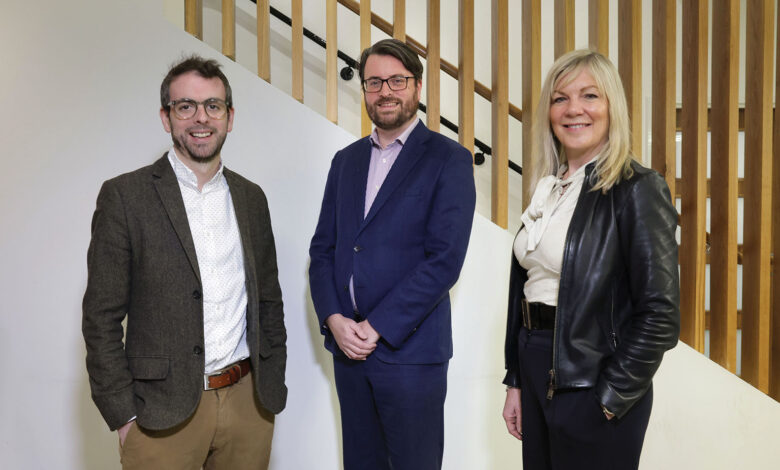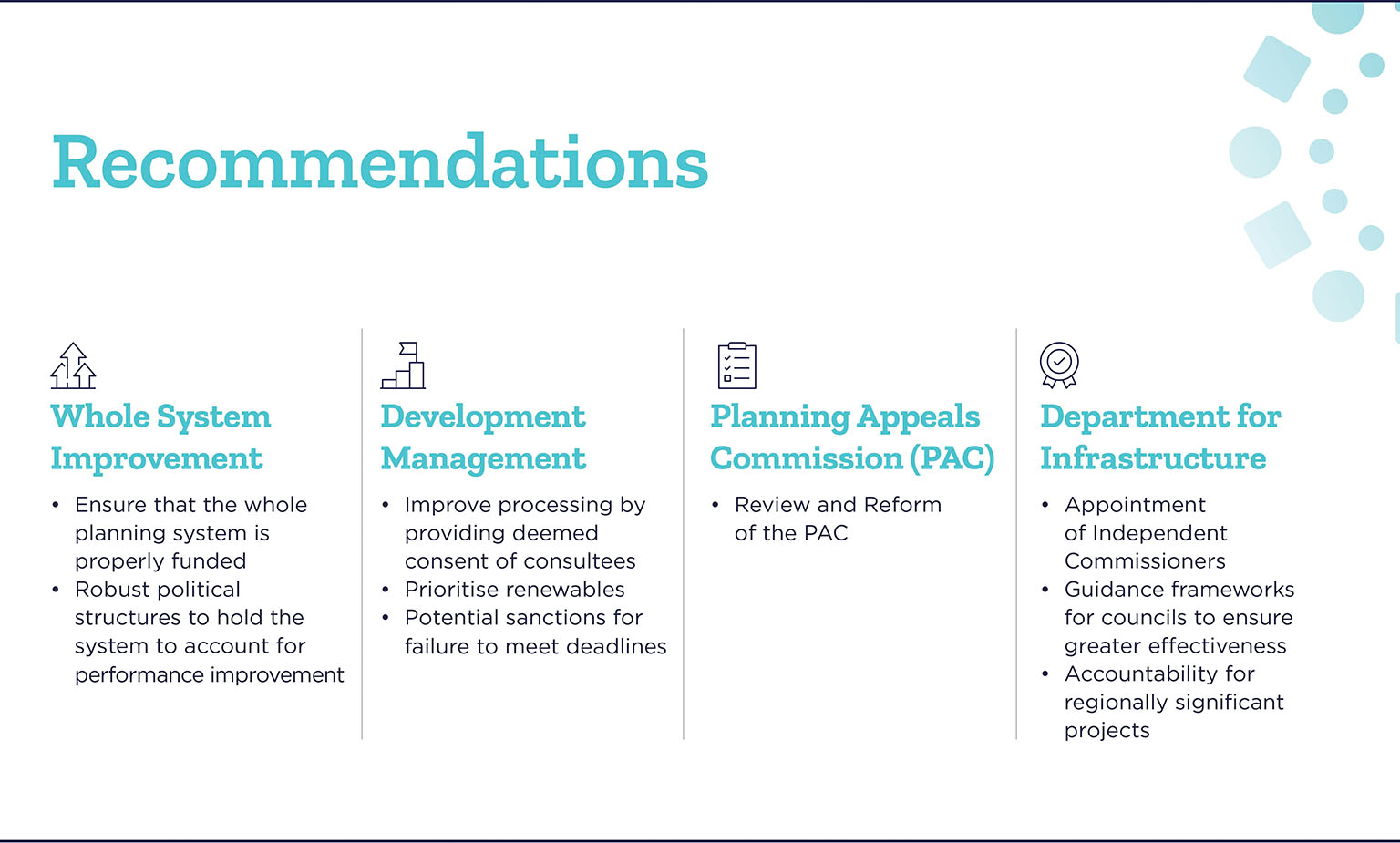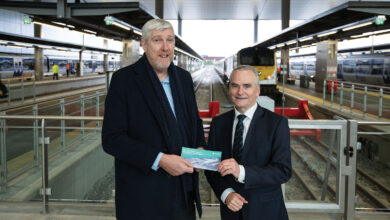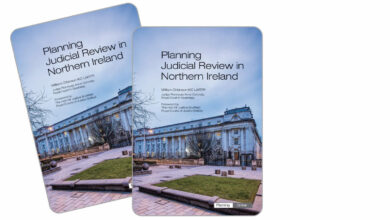Planning: Why it is time to pick up the pace on transformation

NI Chamber and Turley on why ‘swift action’ across all parts of the planning system is critical if Northern Ireland’s planning system is to become an enabler of economic growth.
With growing consensus across government and business about the need to deliver significant improvements to Northern Ireland’s planning system, earlier in 2024, NI Chamber and Turley published a comprehensive set of recommendations for the reform of the region’s planning system. The plans included a far-reaching combination of system improvements, legislative and regulatory changes and proposals, which would ensure that, in future, the planning system is held to account for its performance.
Designed to accelerate Northern Ireland’s progress towards net zero, facilitate economic growth, and deliver much-needed affordable housing and infrastructure, the recommendations received broad political buy-in and since then, there have been some signs of progress. Now, the report’s authors say it is time to build on that momentum and pick up the pace in doing so.
Suzanne Wylie is the Chief Executive of Northern Ireland Chamber of Commerce and Industry, one of the region’s largest business representative organisations with more than 1,000 members across the province. She has real concerns about both how the planning system is functioning and the corresponding impact on investment across the region.
“An efficient and effective planning system is a key economic enabler for any economy but, for Northern Ireland right now, the system here remains one of the biggest issues facing businesses in a whole range of sectors. Certainty in the function and performance of planning is key to instil confidence in the market for potential investors and for local businesses alike. For too long now, the performance of the planning system here has been a deterrent rather than an enabler for investment and growth. If our planning process is to deliver for them and for our planet, we really do need to take action now, which is why we commissioned this report to act as a catalyst for real change.”
The report was prepared by planning consultants Turley, co-authored by Senior Director, Michael Gordon, Director Philip Stinson, and Head of Strategic Communications, John Davison. Michael Gordon sets out the context for the report’s recommendations.
“Planning is a complex area but many of the proposed improvements and solutions have already been proposed. This report was about prioritising the actions that we believe will have the most positive impacts for the economy as a whole.
APEX: A social housing dilemmaPlanning permission for 1,500 vital new homes on the Skeoge Link Road was first granted to a private developer in 2016, after almost 11 and a half years in the planning system. In 2023, Apex Housing Association began developing the land for social housing but, to redesign some of the homes to Housing Executive specifications, has had to re-engage with NI Water through the planning process and before commencing development. Despite NI Water previously confirming capacity for the previous private permission, and work having commenced on 262 units in phase 1 east of the project, planned wastewater upgrades by NI Water have not been completed due to a lack of sufficient funding. As a result, planning permission for the remainder of the homes is uncertain, and Apex are in the precarious position of either having to pause construction of phase one, or continue with the possibility of having completed homes with no water or sewage connections. |
“Following three significant reviews in 2022 by the Department for Infrastructure (DfI), the NI Audit Office (NIAO) and the Public Accounts Committee (PAC), there is broad agreement around the need and steps required to deliver constructive improvement to the performance of the planning system, albeit that there are no quick fixes. This requires a blend of immediate actions, cultural and system improvements. Some will require additional financial resources, personnel and expertise across the whole system of local authorities, consultees and departments.”
“For too long now, the performance of the planning system here has been a deterrent rather than an enabler for investment and growth.”
Suzanne Wylie, Chief Executive of Northern Ireland Chamber of Commerce and Industry
The proposals and progress
Whilst retaining its independence from any government department, back in January 2024, NI Chamber and Turley recommended that the performance of the Planning Appeals Commission (PAC) should be reviewed by the NIAO, given its importance to the system.
Since then, the NIAO has announced that it will be undertaking a strategic review of the overall role and function of the PAC. That review includes consideration of the range of challenges currently facing the PAC and, crucially, the options available to improve performance and wider planning outcomes in Northern Ireland. The NIAO will report on its findings in the Spring of 2025.
The report also suggested that the Department for Infrastructure uses its existing legislative powers to appoint independent commissioners to address some specific requirements, including the independent examination of local development plans (LDPs). In a welcome development, in September 2024, Infrastructure Minister John O’Dowd MLA announced that he had also made a bid to fund the appointment of independent commissioners to alleviate pressures on the PAC.

One of the most significant recommendations related to funding the system is to ensure that the whole planning system is properly resourced, from the Department for Infrastructure to local councils, to statutory consultees and the Planning Appeals Commission. There has been more progress on this front too, with the Minister informing the Northern Ireland Assembly’s Infrastructure Committee that he has made a funding bid to the Executive Transformation Fund to resource statutory consultees in the handling of planning applications.
It also proposed the medium-term introduction of penalties for planning authorities and statutory bodies that fail to meet their statutory timeframes for the processing and determination of regionally significant and major planning applications, once other measures such as additional resources are put in place. This is in addition to a proposed restructure of the distribution of Planning Fees to incentivise the performance of statutory consultees; and introduce penalties for consultees who do not respond within agreed timeframes.
Significantly, the report also suggests that consideration should be given to identifying a more suited sponsor department for the Planning Appeals Commission, which achieves the right balance between priority setting and independence.
Improvement to transformation
Lead author of the report, Philip Stinson, explains the urgent need for further improvement: “There has been some improvement in application processing times in the first quarter of this year, but this has happened in tandem with a significant fall in the overall number of major applications that local council authorities have had to determine – and on average they continue to far exceed the 30-week target. Whether this is because of reduced investor confidence, or constrained public sector funding for social housing, schools, and healthcare, the planning system remains a constraint rather than an enabler of critical infrastructure.
“This steep fall in applications is most significant in renewable energy, which make up the majority of regionally significant applications with the Department for Infrastructure. As we face into a deepening climate emergency and looming climate change obligations, last year processing times for renewable energy applications rose to almost a year, and often much longer for regionally significant proposals – and yet the number of new applications have reached an all-time low – a symptom if not a direct result of the complexity and unpredictability of the planning process. Many regionally significant proposals have not progressed through the planning system due to a backlog and resourcing issues within the Planning Appeals Commission – underlining the need for its review.
“The importance of planning improvement is recognised in the draft Programme for Government, but for planning transformation to occur greater momentum is required and it must be prioritised as the means to delivering critical infrastructure for a sustainable future.”
Following publication of the draft Programme for Government, NI Chamber has called for the introduction of an additional, tenth priority which is focused on enabling critical infrastructure such as transport, grid connectivity, upgrading Northern Ireland’s mobile network and most pressingly, the region’s ailing wastewater infrastructure.
Stuart Anderson, Director of Public Affairs at NI Chamber explains: “Constraints in Northern Ireland’s existing funding models for public infrastructure are hampering our ability to deliver on housing, decarbonisation, and wider economic development.
“In combination with an inefficient planning system, our inadequate water treatment capacity is having an immediate impact on housing delivery this year, with 2024/25 anticipated to deliver the fewest new homes in Northern Ireland since World War II. There are also signs of more immediate environmental impacts, including those already seen in Lough Neagh.”
Enabling critical infrastructure is key to our competitiveness
The NI Audit Office produced a report on the planning system in 2022, and NI Chamber and Turley prioritised many of its recommendations in its own paper. Whilst some progress has been made, improvement quickly needs to become transformation.
By the same token, in March 2024 the NIAO also called for a quick and ‘comprehensive review of alternative arrangements, led by suitably qualified experts’ to address how NI Water sustainably funds wastewater infrastructure. This urgent review must be considered as the Executive consults on its 2025/26 Budget.
Turley’s Head of Strategic Communications, John Davison, highlights the differing political urgency outside Northern Ireland: “Efforts to improve the planning system and wastewater infrastructure have been prioritised by the Irish Government with the recent consent of the Planning and Development Bill 2023, and through additional funding for Uisce Éireann for investment in wastewater treatment plants and upgraded infrastructure. The UK Government has made planning reform a key plank of tackling the housing crisis and stimulating economic growth. By contrast, we simply have not prioritised the physical infrastructure and policy framework that generates investment – we are in danger of falling further behind – and this will harm our competitiveness as a region.
“Simply put, the bureaucratic and intricate nature of planning policy is not glamourous, and we seldom think about the importance to our economy or the environment of the drains beneath our feet. However, if we look south and east, both these issues have never had greater political focus – and in the clamour of our Executive to promote housing, healthcare, environment, and the economy our parties are in danger of ignoring the means by which these priorities can be delivered.”

“We simply have not prioritised the physical infrastructure and policy framework that generates investment – we are in danger of falling further behind – and this will harm our competitiveness as a region.”
John Davison, Head of Strategic Communications, Turley
In summary
From developing renewable energy to building sustainable and affordable housing, to improving our water quality, there is much that needs to be done at pace to enable the infrastructure we need for a sustainable future. A functional planning system is as foundational to this as the drains beneath our feet.
Planning transformation presents an opportunity to open the door to significant sustainable growth and unlock Northern Ireland’s pathway to a decarbonised economy and is vital to deliver the enabling infrastructure for industry, economic growth, healthcare, education and new homes.
We know that most economic development begins with planning, and for that reason, the performance of our planning system must be competitive to attract and encourage investment.\

Northern Ireland Chamber of Commerce and Industry
T: 028 9024 4113
E: mail@northernirelandchamber.com
W: www.northernirelandchamber.com

Turley
T: 028 9072 3900
E: michael.gordon@turley.co.uk
W: www.turley.co.uk





